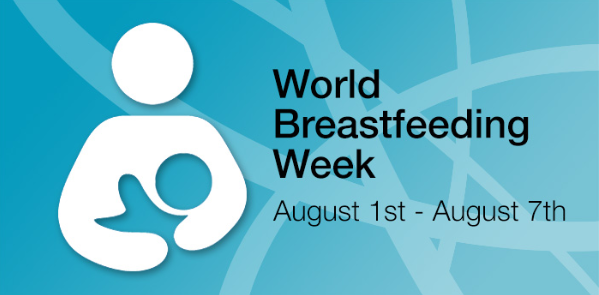The Civil Society-Scaling Up Nutrition in Nigeria (CS-SUNN) has called for improved and sustainable investments at all levels of governance to promote breastfeeding in Nigeria.
This organization made this known in a Press Statement signed and issued in commemorating the 2020 World Breastfeeding Week (WBW).
The theme for this year’s WBW, “Support breastfeeding for a healthier planet” draws attention to the fact that breastmilk, is a natural renewable food that is environmentally safe for infants because it is produced and delivered to infants without pollution, packaging and waste.

The theme focuses on the impact of infant feeding on the environment/climate change and the imperative to protect, promote and support breastfeeding for the health of the planet and its people.
According to the World Alliance for Breastfeeding Action WABA; Breastfeeding is a prime example of the deep connections between human health and natures eco system. WABA also reinstates that protecting, promoting and supporting breastfeeding addresses inequalities that stand in the way of sustainable development.
The Alliance further notes that artificial feeding leaves a major environmental footprint that contributes to the depletion of natural resources, environment degradation and green-house emissions that cause global warming and climate change.
Nigeria’s Exclusive breastfeeding rate had remained abysmally low with only a marginal increase from 2% in 1990 to 17% in 2013 (NNHS). It then jumped to 27% as reported in the 2018NNHS.
Although some minimal progress has been made in this regard, CS-SUNN questions what impact this 26-year long custom, (the WBW celebration) has had on breastfeeding in Nigeria.
The alliance is further concerned about how Nigeria will meet the global targets of 65% Exclusive Breastfeeding rate by 2025.
With the country’s current childhood under-nutrition indicator put at 37% stunting, 7% wasting and 23% underweight (NDHS, 2018) and about 2.6 million children under the age of five threatened by malnutrition (2018 NNHS), a lot still needs to be done to eradicate the country’s challenge of malnutrition.
In line with the objectives of this year’s World Breastfeeding Week, CS-SUNN states the need for:
• Nigerians to become better informed about the links between breastfeeding and the environment/climate change.
• Breastfeeding to be anchored as a climate-smart decision.
• Individuals, Organizations and Government at all levels to engage and work collaboratively for greater impact
• Galvanizing action on improving the health of the planet and Nigerians through breastfeeding.
The alliance stresses that aside its nutritional benefits (contains all the water and nutrients the baby needs in the first six months of life, in the right amounts to promote growth and maintain healthy living), breast milk helps to prevent pneumonia and diarrhoea, two of the leading causes of death for children under five and that babies who are breastfed are 14 times less likely to die than those who are not fed breast milk.
Improving optimal breastfeeding practices is important to CS-SUNN because it makes Nigeria and the World at large healthier, smarter, and more equal. The alliance will continue tosupport and advocate for Nigeria to reach the Health SDGs (breastfeeding is a critical key in achieving some) especially the SDG 2 and SDG3 which include ending hunger, improving nutrition and promoting health and well-being.
PRACTICAL ACTIONS FOR PROTECTING, PROMOTING AND SUPPORTING BREASTFEEDING IN NIGERIA:
1) State governments should approve 6 months maternity leave and ensure breastfeeding friendly environment/creches in workplaces.
2) Government at all levels should fully enforce the International Code of Breast-milk marketing Substitutes and ensure that monitoring mechanisms are in place.
3) Implementation of the Multisectoral Plan of Action for Nutrition at the national and state levels.
4) Strengthening the capacity of health systems to provide counseling on infant and young child feeding practices and the resuscitation of Baby-Friendly Hospital Initiative.
